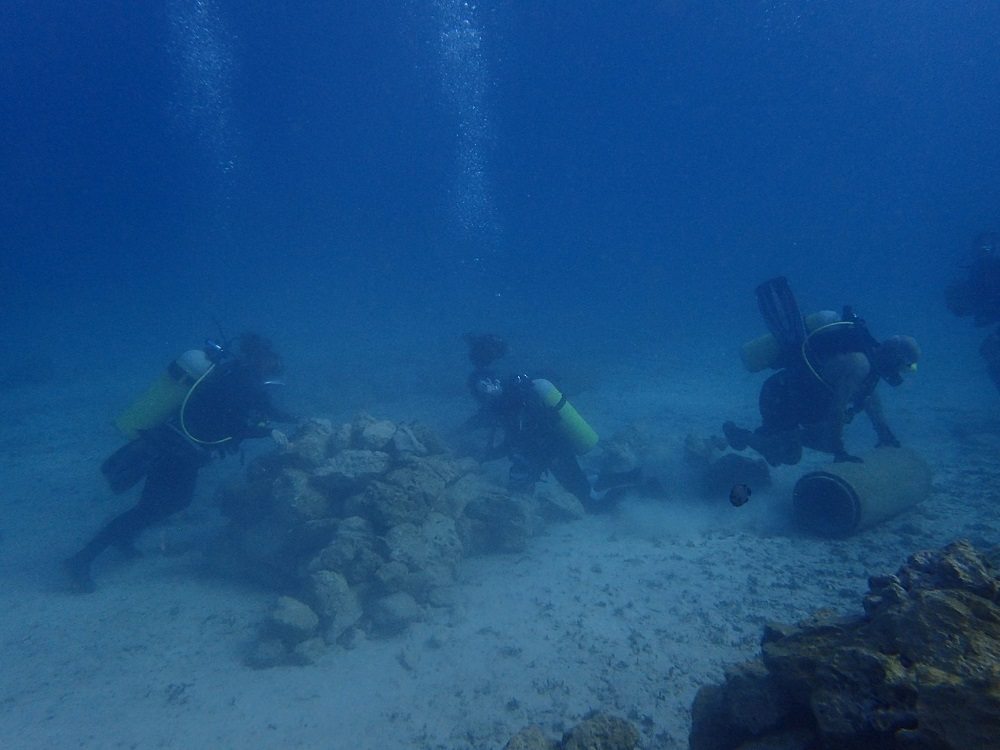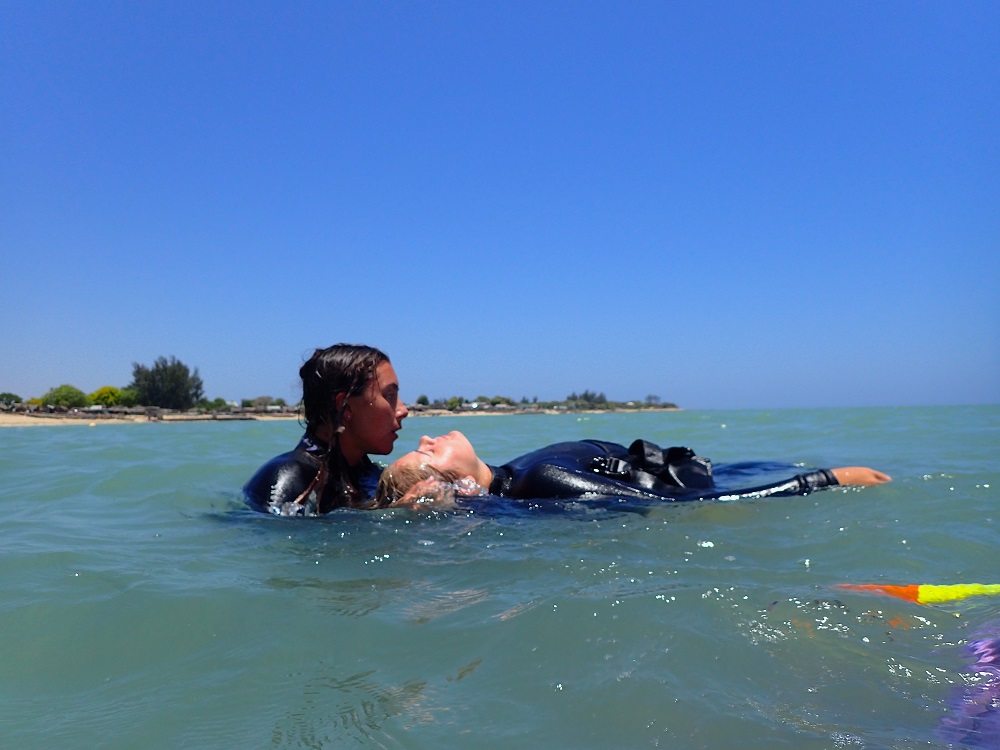Life as a Reef Doctor Intern: Week 14
Hi guys! It’s been awhile since my last post, we’ve all been quite busy on camp. I am now in my 14th week of interning for Reef Doctor. Things are going really well. My last post was before Christmas; I therefore thought I’d give you guys a quick update on what a bunch of us did for New year’s. We decided to go to a nearby village called St Augustin which is around an hour and a half away from Toliara. We choose St Augustin as it isn’t too far away, as well as being relatively cheap and the place is known for its natural pools and grottos. We spent New year’s eve hiking, swimming in crystal clear water and watching the stars on a deserted beach. It was an adventurous and very fun trip. I learned that in Madagascar you have to be very patient with everything – on the first day it took us 12 hours to get to our destination! I also learned how interesting and diverse the landscape is, how quickly it can change. It is a beautiful country and I definitely want to see more of it.
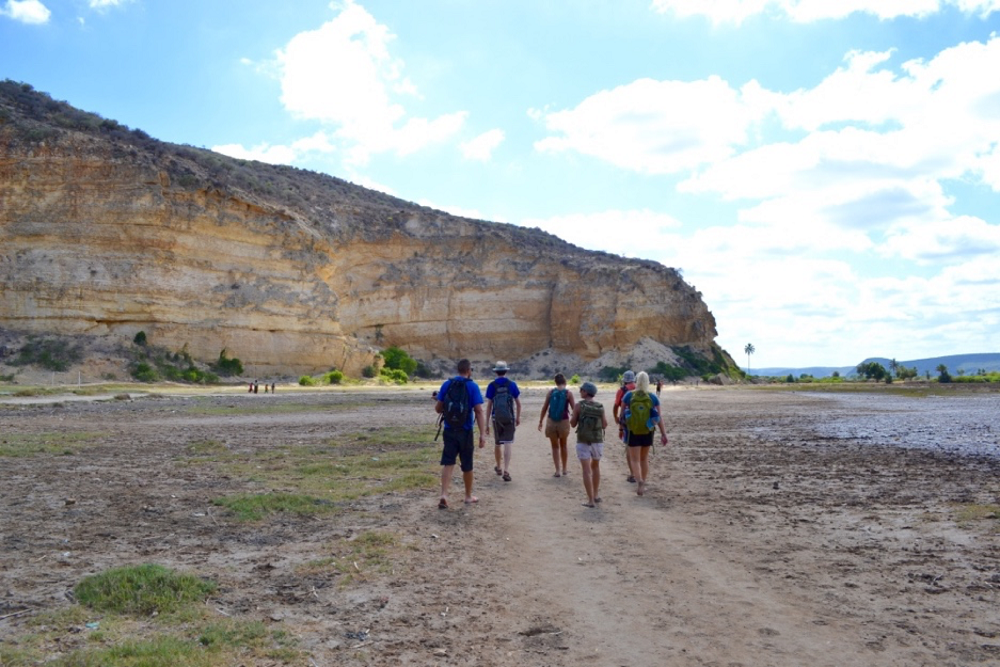
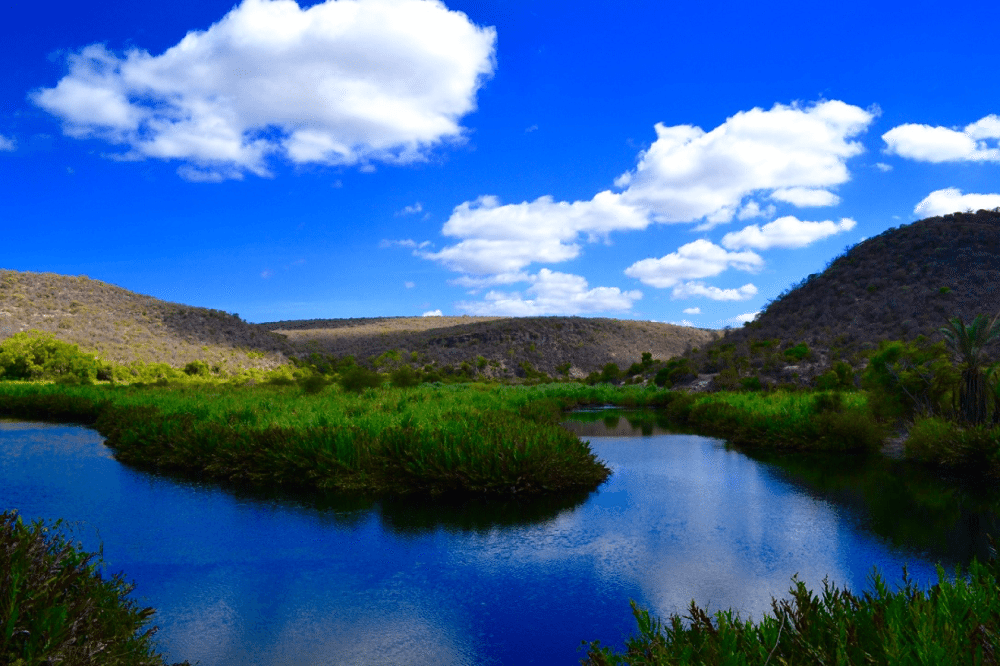
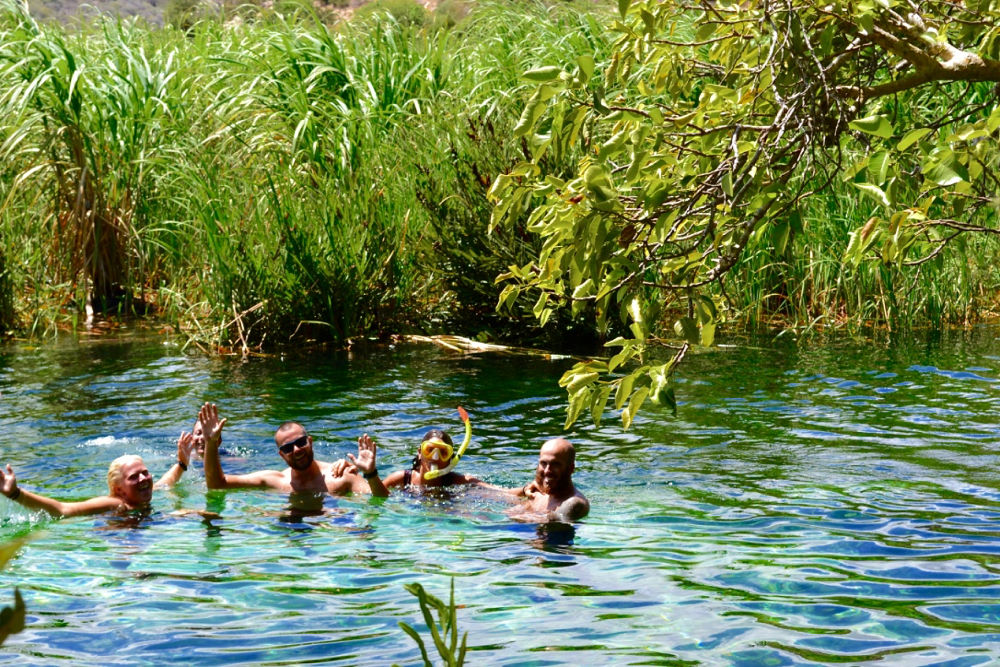
With regard to the last two weeks, I am nearing the end of my Divemaster training. I completed most of the necessary water skills and passed the written exam last Friday. 13 new people arrive tomorrow. The other soon-to-be Divemasters and I will then be accompanying them on scuba refresher dives as well as assisting with any other dives or skills that need the new interns and volunteers have difficulty with. You have to be quite patient and exaggerate every movement when demonstrating surface or underwater skills. The dive master training made me realise that people learn at different paces, pick up knowledge in different ways and not everybody finds diving easy. The training definitely gave me a good foundation of how to teach people. Perhaps I’ll train for instructor next!
Apart from that, the tree project is going well. A few people on camp have signed up for a tree contest. The aim of the contest is to plant a tree, experiment with different planting techniques and see whose tree grows the best. We each have to choose a different tree species. Each person has to then decide where to plant the tree, what soil and fertiliser to use e.g. seaweed or mulching, how often the tree sapling needs to be watered as well as if it needs protection e.g. in the form of a mosquito net for example. The competition will allow us to collect notes on how best to grow the different tree species. This will provide us with essential information that we can then use when we properly start planting our trees.
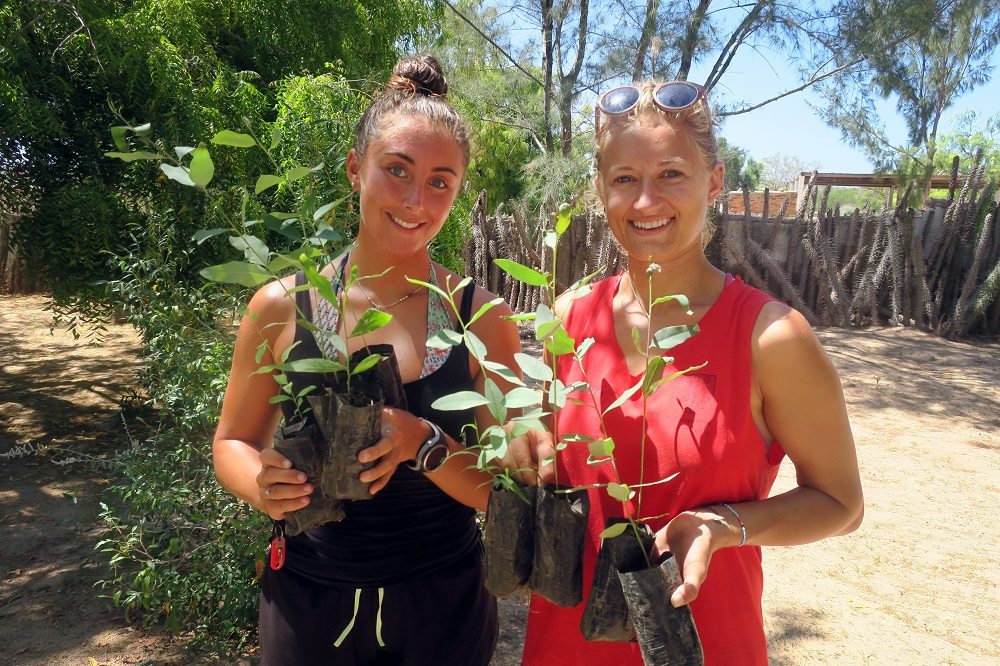
We have also started creating a tree database on the various trees found on camp. A sign will then be constructed and put up near the tree. This will enable people to learn more about the different plants found in Madagascar, what their different uses are as well as making people realise how many of the plants are native to the island. Madagascar is such a unique place with thousands of animals and plants being endemic to the island; increasing people’s realisation and knowledge of this could be a decisive way to encourage protection and respect for this extremely diverse environment.
On another note, the weather has been very warm and humid the past couple of days. In the evenings there is often a storm with showers of rain. This cools the temperature down, however it is also the perfect weather for breeding mosquitoes. Tip for new interns and volunteers: bring lots of DEET!
Hope you all have a good week,
Saoirse Flood

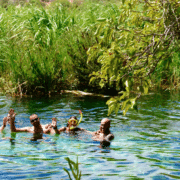
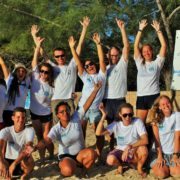
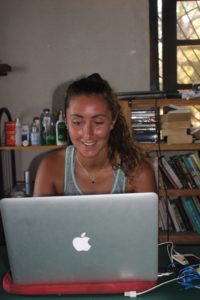 “I’ve had a really good week filled with lots of different activities and jobs. We had a lot of early starts starts due to the tides; most mornings required waking up at 4.30/5am. The majority of the diving this week focused on coral cleaning, mapping the new artificial reef site as well as receiving expert fish and benthic point outs. At the beginning of my internship I had to learn the key indicator species present in the Bay of Ranobe. These species were chosen by Reef Doctor as their absence or presence are good indicators of how the marine environment is doing. However, as the other interns and I have now been here for 2 months we have started to learn about more species in order to be able to conduct expert surveys. It’s extremely interesting to learn about all the different species and their characteristics. It also makes diving more enjoyable and really shows you how complex and unique the marine life here actually is!
“I’ve had a really good week filled with lots of different activities and jobs. We had a lot of early starts starts due to the tides; most mornings required waking up at 4.30/5am. The majority of the diving this week focused on coral cleaning, mapping the new artificial reef site as well as receiving expert fish and benthic point outs. At the beginning of my internship I had to learn the key indicator species present in the Bay of Ranobe. These species were chosen by Reef Doctor as their absence or presence are good indicators of how the marine environment is doing. However, as the other interns and I have now been here for 2 months we have started to learn about more species in order to be able to conduct expert surveys. It’s extremely interesting to learn about all the different species and their characteristics. It also makes diving more enjoyable and really shows you how complex and unique the marine life here actually is!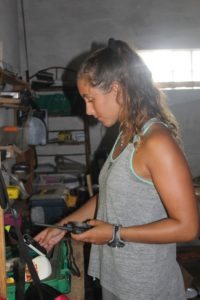
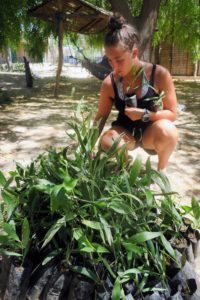 urthermore, I have also become involved in a new forest conservation project. Madagascar has a huge problem with deforestation; the human population is constantly increasing and people are using too much wood for cooking, construction purposes among other things. Consequently, the aim of this project is to provide the local community with an alternative and sustainable source of wood by establishing a tree nursery. It will educate villagers on the importance of protecting and restoring forests as well as providing them with a renewable resource. We are trying to use trees that will grow quickly but that will also be beneficial to the environment, for example important nitrogen fixers, or effective erosion controllers that will then help minimise pollution as well as attracting wildlife. It’s a great project that aims to confront one of Madagascar’s biggest environmental issues while at the same time trying to find solutions, which will benefit the locals as well as the environment.
urthermore, I have also become involved in a new forest conservation project. Madagascar has a huge problem with deforestation; the human population is constantly increasing and people are using too much wood for cooking, construction purposes among other things. Consequently, the aim of this project is to provide the local community with an alternative and sustainable source of wood by establishing a tree nursery. It will educate villagers on the importance of protecting and restoring forests as well as providing them with a renewable resource. We are trying to use trees that will grow quickly but that will also be beneficial to the environment, for example important nitrogen fixers, or effective erosion controllers that will then help minimise pollution as well as attracting wildlife. It’s a great project that aims to confront one of Madagascar’s biggest environmental issues while at the same time trying to find solutions, which will benefit the locals as well as the environment.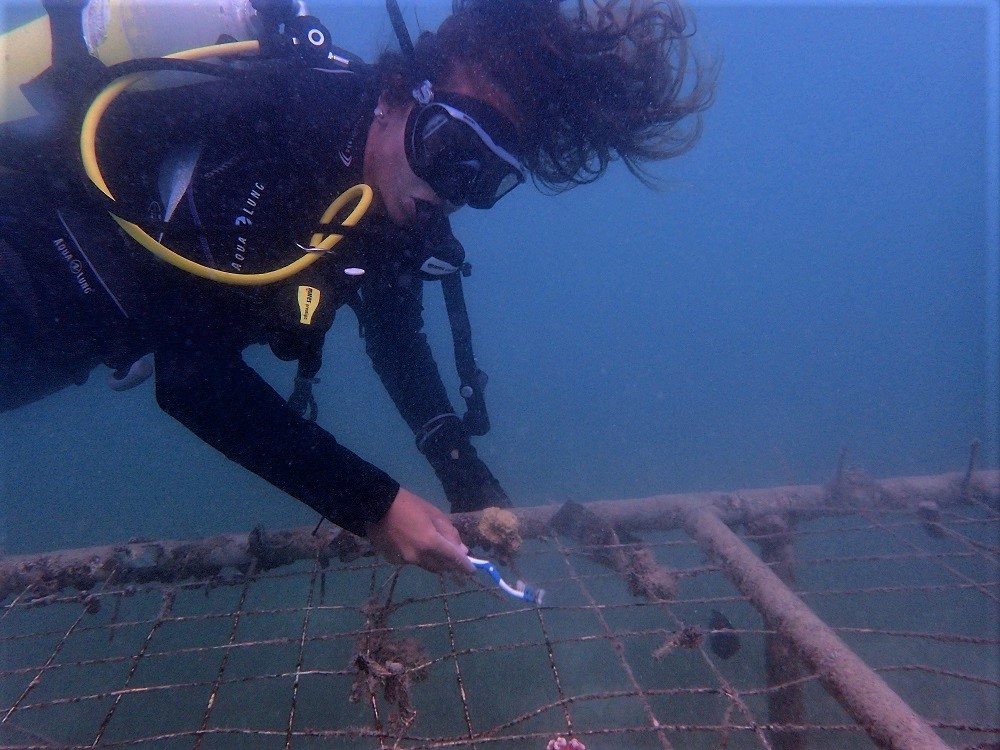
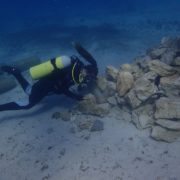
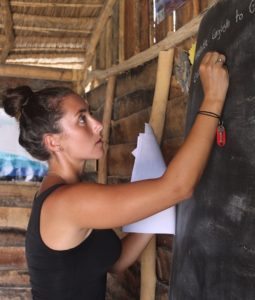 The 5th of December is International Volunteer day! We thought we would mark the occasion by posting the first in what will be a series of volunteer and intern blogs. In this blog, Saoirse Flood, who started volunteering for ReefDoctor in October, describes her experiences so far as a
The 5th of December is International Volunteer day! We thought we would mark the occasion by posting the first in what will be a series of volunteer and intern blogs. In this blog, Saoirse Flood, who started volunteering for ReefDoctor in October, describes her experiences so far as a 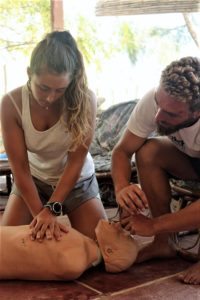 afternoons are filled with more dives or you could be learning marine science stuff, learning the local language or teaching English to local villagers. I am currently doing my PADI rescue course so I am learning all about CPR and other first aid measures. Then hopefully in a week or two I will start my Divemaster. You are kept quite busy but it’s a good busy. The evenings are then spent reading on the porch or going into Ifaty village for a nice cold beer and some local street food.
afternoons are filled with more dives or you could be learning marine science stuff, learning the local language or teaching English to local villagers. I am currently doing my PADI rescue course so I am learning all about CPR and other first aid measures. Then hopefully in a week or two I will start my Divemaster. You are kept quite busy but it’s a good busy. The evenings are then spent reading on the porch or going into Ifaty village for a nice cold beer and some local street food.